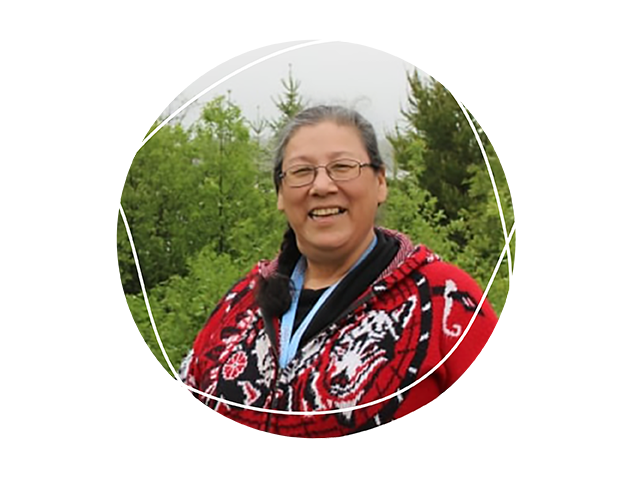
Faces of dementia: Beckie's story
Here, artist and Elder Beckie Labilliois, Mi’kmaq from Ugpi’Ganjig First Nation, talks about her mother’s life, legacy and experiences of dementia.
"My mother was once an icon all over Canada,the United States, and even overseas. She fought for her heritage, culture, beliefs, and for her way of life. She was a strong lnu Epit. She grew up to be the first from her reserve of Eel River Bar to graduate with high honours.
She was the first female Chief elected in the province of New Brunswick. She was a strong advocate for having the Mi’kmaq language taught in schools to ensure that the children of Eel River Bar would know who they are. She hoped to reconnect the severed ties caused by residential schools and to heal their effects on the reserve.
I recall having to identify people for my mom as she presented with signs of early dementia. We always giggled and laughed that we just were getting older and forgetting people, places, and things. We as lnu people are familiar with the little people playing tricks or being tricksters and hiding things on us until we forget about it. We call these people the Booglatamootj.
I learned to compensate for mom early on by identifying people, places and things to what they were connected to, to help jog her memory. It was my great honour to get to know the circle of people that she was surrounded by in her years of dedication to the Union of New Brunswick Indians, and the various boards and associations with which she was involved. The powwows, gatherings, and conferences were the time to meet, greet, trade, and reflect upon ideas, while also reminding us that whatever we learn is not ours to keep for ourselves, but rather to be passed on. That is the circle of life.
Her presence and wisdom were sought after at various gatherings and meetings. It was after these gatherings that she would ask me who certain people were, and we would giggle. She would talk to everyone as if she knew them; everyone’s voice mattered in her eyes. She was a great listener. She gifted me with the listening ear.
Many times, we would have to jog her memory and then she would recall who that person was and the connection. We would just giggle and say, “we are not lost, we are just taking a different way to get there.” The best one was when she would say, “well we are here, better late than never.”
"We need to educate ourselves on dementia to know the signs and symptoms, so that we can put resources in place before any abuse can happen to our respected Elders."
I recall many times waking up early to travel to meetings all over North America. We were well known as the road runners. I had my youngest daughter Jenna travel with us most of the time.
My mom needed someone to take her because she never had a licence or a vehicle, so all the siblings, nieces, nephews, and even the Chief would drive her to meetings. She was always busy with her crafts, and she would sell them at every event, trying to keep the Apitjipeg crafts alive. This was her connection to her cycle of life.
Our family and our whole community had a chance to learn from her hands-on approach, so we can pass it on to the next generation. It is with great pride to be able to acknowledge our ancestors of the past, present and future.
We are all connected in this circle of life. We come to a journey of birth, adolescence, adulthood, and elderhood. We need to educate ourselves on dementia to know the signs and symptoms, so that we can put resources in place before any abuse can happen to our respected Elders."
Adapted from the Native Women’s Association of Canada’s A Sacred Journey with the permission of Native Women’s Association of Canada and Beckie Labillois.
Photo: Courtesy of Beckie Labillois and Vanessa Blanch/CBC Licensing.
